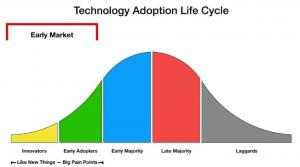- Oracle Managed Services
Oracle Managed Services
- Oracle Cloud Services
- Oracle Consulting Services
Oracle Consulting Services
- Oracle Application Development
- Contact Us
Getting ahead with Oracle Cloud
Contents
In recent years, the amount of investment Oracle have put into their Cloud platform is impressive to say the least. Where they were once seen as left wanting to the likes of AWS, they are now pushing for the crown of Cloud leader. The recent advancements within Oracle Cloud have been notable and substantial, and you can even consult our new Oracle Cloud Calculator to check that it won’t cost an arm and a leg – but how can you use this to get ahead of the game?
Your first consideration should be the commercial benefits that Oracle Cloud can enable. It’s worth noting that advancements in all Cloud technologies have underpinned scaled growth in a manner that was previously thought impossible. The ability to inject agility and scalability into any business while combining it with best-in-class security is highly sought after by any good CEO.
Secondly, you need to consider how to deliver an appropriate technical adoption of Oracle Cloud and align it to business revenue/growth plans. Whether it be IaaS, PaaS, SaaS and on-premise, hybrid or pure Cloud or even cross-cloud, cross-vendor options, it’s a problem that many IT departments struggle to get their heads around. In this scenario, a couple of days spent with an expert consultant would be worth its weight in gold to ensure that your data platform is optimised and future proofed. mmmmmmmmmmmmmmmmm
Data – Challenge and Opportunity
Now on to the big hitter: Data Challenge and Opportunity. When thinking about the ‘why’s and ‘how’s of Cloud options, the real questions to consider are those around ‘data’ itself. In a nutshell:
- If your organisation doesn’t possess data you value, the chances are Cloud may not be the solution you’re looking for. Instead, consider looking at a ‘Modernisation & Consolidation’ project to drive down costs and improve efficiencies.
- But if you do – and your competitors do – then future proofing your company is vital. How you respond to ‘data challenges and opportunities’ will set you ahead of competitors and define how successful you are moving forward.
How do I turn Data Challenge into an opportunity?
If as per point 2 you are a ‘data-driven’ company, keep reading. With the exponential growth of data from both internal and external sources, companies are struggling to manage the data deluge. So, it’s no surprise that some of the biggest challenges – and hence the most common questions – are on data security and data monetisation. For companies looking to get ahead with Oracle Cloud, you should strive towards three core business imperatives:
- Transform to Modern Cloud: reduce costs and accelerate innovation.
- Maximise the Value Data: gain rapid insights and new revenue models.
- Ensure Data Safety: keep data secure and always available.
Should you follow these steps, you’ll be pleased to hear that the opportunity for monetising data is huge. To help quantify this, I’ve listed two sets of research facts:
Data Opportunity:
- It's understood that there's a £332.8B advantage for Data driven organisations - IDC
- Businesses using data as an asset are x19 more likely to be profitable - McKinsey
- A 10% increase in data accessibility translates to £52.8M - Baseline mmmmmmmmmmmmmmmmmmmmmmmmmmmmmm
Data Challenges:
- Only 32% of organisations are using analytics to drive business strategy - Gartner
- The Equifax data breach cost over £3B - Money
- Most organisations are struggling to manage their data - Gartner
If managed correctly, these Challenges vs. Opportunities could be your ticket to getting ahead with Oracle Cloud – and Oracle Cloud is surely your best bet for doing so. Over the last few months I’ve noticed the term ‘Serious Cloud’ popping into casual conversations around Oracle. This loosely means that if a company historically needed a ‘serious database’ for running heavy mission critical workloads, Oracle would be the natural database of choice: now that Oracle Cloud has reached maturity, the term has subsequently evolved to acknowledge Oracle as the ‘serious’ cloud provider. mmmmmmmmmmmmmmmmmmmmmmmmmmmmmmmmmmmmmmmm
Beat the Curve
If you’re running Oracle databases and applications that don’t need to be on-premise, now is the time to seriously consider Oracle Cloud: and if you overlay this observation with Geoffrey Moore’s lifecycle of Technology adoption, we are just on the cusp of transitioning between ‘Early Adopters’ and ‘Early Majority’. For those wishing to capitalise the most on Oracle Cloud and drive competitive advantages before the ‘Late Majority’ jump on the band wagon, now’s the time to do it.
For more information on how to kick off your migration to Oracle Cloud and get ahead of the curve, visit our Oracle Bitesize webpage or contact us via the DSP-Explorer website.

.png?width=200&name=stripe-background-image_750x400%20(2).png)



